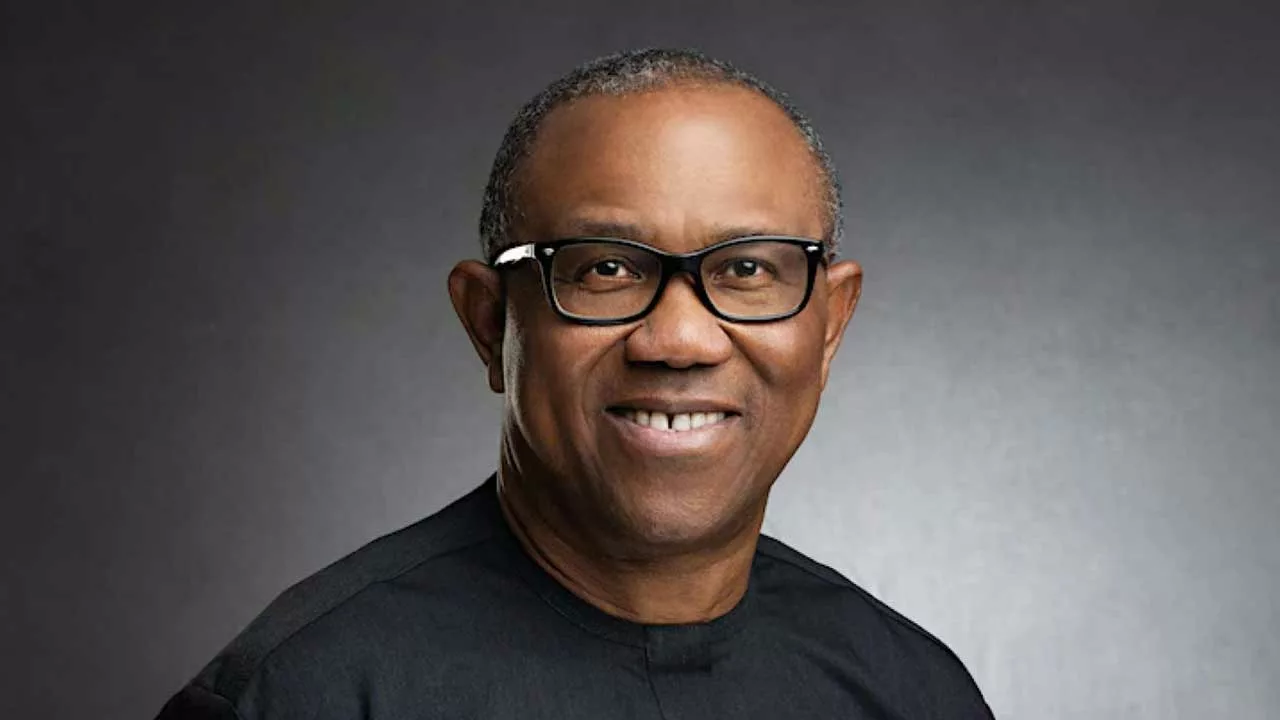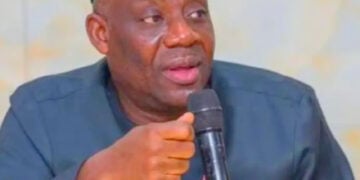Peter Obi has done it again. The Labour Party’s former presidential candidate has thrown the political space into frenzy with his recent declaration that he’ll serve only one term if elected in 2027. As expected, politicians and armchair analysts are falling over themselves to either praise this “statesmanlike” gesture or dismiss it as another campaign gimmick.
My thoughts on this? I think we’re having the wrong conversation entirely.
Don’t get me wrong – I understand the political chess game Obi is playing. He’s reading the room correctly. Most northerners who supported a southern candidate in 2023 are already positioning for 2031 and the last thing they want is another eight-year southern presidency in 2027. So Obi, ever the astute politician, is dangling the one-term carrot to win their support. It’s smart politics, but terrible governance philosophy.
The real question we should be asking isn’t whether Obi will keep his one-term promise – we all know how Nigerian politicians treat campaign promises. The question is: can any leader, regardless of how long they stay in office, actually fix Nigeria in four years?
The answer is a resounding no, and here’s why.
Nigerians have this peculiar obsession with finding a messiah president who will wave a magic wand and transform the country overnight. We did it with President Olusegun Obasanjo in 1999, with President Umaru Yar’Adua in 2007, with President Goodluck Jonathan in 2010, and with President Muhammadu Buhari in 2015. Each time, we convinced ourselves that this time would be different. Each time, we were disappointed.
The hard truth is that one person cannot fix Nigeria. This isn’t a military regime where the head of state can whip everyone into line with executive fiats. Having a saint as president doesn’t automatically transform the National Assembly into a collection of saints, or turn governors into development-focused leaders, or make civil servants suddenly efficient.
You need quality representation at all levels of government – federal, state, and local – to see real change. When a “good” president is surrounded by corrupt governors, inefficient lawmakers, and a bureaucracy that moves at snail speed, what exactly do you expect?
Let’s do some simple mathematics. We have over 30,000 bandits in Zamfara State alone, operating from more than 100 camps. Extrapolate that across the northwest and parts of the northcentral and you’re looking at close to 50,000 bandits terrorising communities. Add the remnants of Boko Haram in the northeast, and you get the picture.
Can any president buy enough military hardware and motivate soldiers sufficiently to reduce insecurity to the barest minimum in four years? The Americans spent 20 years in Afghanistan with the world’s most sophisticated military and still couldn’t completely defeat the Taliban. Yet we expect a Nigerian president to defeat multiple insurgent groups in four years with our overstretched and under-equipped military.
Then there’s the electricity crisis. Since independence, we’ve been stuck between 3,000 and 5,000 megawatts of electricity for 200 million Nigerians. South Africa, with less than half our population, generates over 50,000MW. For Nigeria to have uninterrupted power supply, we need about 100,000MW, which would cost hundreds of billions of dollars. Even if we had that money – which we don’t – can you build that infrastructure in four years?
Our healthcare system is in tatters. The COVID-19 pandemic exposed us completely – we were saved only by God’s mercy, not by any functioning health system. Our hospitals are decrepit, our doctors and lecturers are overworked and underpaid. Can any president build world-class hospitals, upgrade tertiary institutions, and adequately compensate healthcare workers in four years?
The biggest elephant in the room is money. Where will all the funds for these transformations come from? Even if we meet our crude oil production targets and miraculously stop oil theft, it still won’t be enough to fix even one sector properly.
Should we raise taxes? Good luck getting Nigerians to pay more taxes when they’re already struggling with high cost of living. Continue borrowing? We’re already debt-trapped, spending over 90% of revenue on debt servicing. Bring back fuel subsidies and forex subsidies? Where will we find the money to sustain them?
The uncomfortable truth is that Nigeria isn’t as rich as we like to think. The budget of the New York Fire Department is larger than our national budget. Even if we eliminate corruption completely and block all leakages – which is impossible in four years – it still won’t provide enough resources to transform Nigeria from a developing to a developed nation.
While Obi quotes Abraham Lincoln and Nelson Mandela about purposeful service, he’s missing a fundamental point. Lincoln had the advantage of leading a country with functioning institutions and a culture of accountability. Mandela inherited a South Africa with better infrastructure and institutions than most African countries.
Nigeria’s problems run deeper than leadership tenure. We have a culture that rewards mediocrity, celebrates corruption when it benefits “our people,” and treats public office as an opportunity for personal enrichment. We have citizens who vote based on ethnicity and religion rather than competence and character.
How do you change such a deeply entrenched culture in four years? How do you build institutions that have been systematically weakened over decades? How do you create a new mind-set among 200 million people in less than a presidential term?
Instead of debating whether four years is enough, we should be discussing what realistic progress looks like. A good leader can start the process of transformation, lay solid foundations, and create momentum for successors to build upon. But expecting complete transformation in one term is setting up any leader for failure.
We need to start thinking in terms of generational change, not electoral cycles. We need leaders who can start building strong institutions, even if they won’t see the full benefits during their tenure. We need citizens who understand that nation-building is a marathon, not a sprint.
The governors calling for restructuring should start by restructuring their own states. Lawmakers advocating for good governance should begin by making the National Assembly more efficient.
Citizens demanding change should start by changing their voting patterns and holding leaders accountable at all levels.
Peter Obi’s one-term promise is good politics but questionable governance philosophy. Four years isn’t enough to fix Nigeria, and neither is eight years, or even twelve. What we need are leaders who understand that they’re part of a longer transformation journey, not messiahs who will solve everything before their next election.
The sooner we accept this reality, the sooner we can start having honest conversations about realistic timelines for change. Until then, we’ll keep cycling through leaders, making the same promises, and ending up with the same disappointments.
Nigerian voters need to borrow themselves some brain, as we say locally. Stop looking for messiahs and start demanding competent leadership at all levels. Stop celebrating empty promises and start holding leaders accountable for realistic, measurable progress.
Because if we don’t change our expectations and approach to governance, it won’t matter whether our next president serves one term, two terms, or ten terms. We’ll still be where we are today – going round in circles while the world moves ahead.
The truth, as they say, is bitter. But it’s the only foundation upon which real change can be built.
We’ve got the edge. Get real-time reports, breaking scoops, and exclusive angles delivered straight to your phone. Don’t settle for stale news. Join LEADERSHIP NEWS on WhatsApp for 24/7 updates →
Join Our WhatsApp Channel










